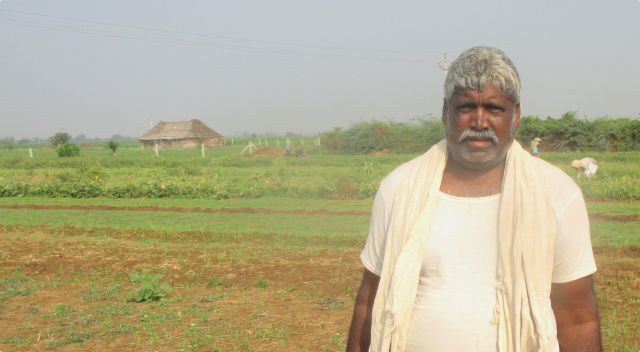Promoting Alternative Crop Farming for Rural Prosperity
The Wadi Project in Gobrageria village, West Bengal, has transformed the lives of farmers Kalipada Das and Kanai Das. Initially faced with half an acre of barren land due to water scarcity, they found hope and inspiration through the project, which encouraged them to explore alternative crop cultivation as a means of earning a livelihood. As part of the project, they were provided with 16 mango and 24 cashew nut plants. Taking charge of the preparation work themselves, including staking and manure application, they diligently followed the advice received to cultivate the crops successfully.
Today, their efforts have paid off, with 100% of their plants thriving. The Wadi Project aimed to foster comprehensive tribal development, encompassing natural resource management, micro-finance initiatives, health development, and women's empowerment, with active participation from the community. Encouraged by the project, Kanai Das also took the initiative to learn effective weed management techniques and implemented intercropping on his land, dedicating 10 decimals to growing eggplant. This endeavour resulted in a profit of INR 8,000 for him.
The primary objective of the project was to rejuvenate the environment in an integrated and comprehensive manner, enhancing the quality of life for poor tribal families. With consideration for the tribal customs and traditions, as well as the socio-cultural and geographical realities, the project was implemented by Re Sustainability with support from NABARD's Tribal Development Fund. The program primarily focused on improving the livelihoods of Scheduled Tribes who possess uncultivated fertile land and rely on rainwater for cultivation.
The project's approach emphasizes the sustainable utilization of locally available resources, ensuring benefits not only for the farmers but also for the environment. In the Keshiary Block of West Midnapur District, West Bengal, the project extends orchard support to 450 land-owner families and micro-enterprise support to 50 landless families, fostering a pathway to a better future.
- Zero Waste

